Toronto’s Terrestrial Reefs: Winner of a 2023 Canadian Architect Student Award of Excellence
By Maria Cook
December 1, 2023
Cameron Penney has won a Canadian Architect Student Award of Excellence for Toronto’s Terrestrial Reefs, which explores the design potential of BioRock, a low-carbon concrete alternative constructed with salt, water, and a low-level electric current.
The winning project is based on his Master of Architecture thesis, Toronto’s Terrestrial Reefs: BioRock’s Infrastructural Biogeochemical Futures, completed under the supervision of Associate Professor Lisa Moffitt.

“My intent with this research aligns with an overarching interest of mine—how can we reshape urban environments into living, self-sustaining ecosystems?” says Penney, who graduated with a Master of Architecture degree from the Azrieli School of Architecture & Urbanism in 2023.
“These ideas first came to life during my undergraduate pursuits in urban ecology and continue to define my interests,” he says. “The world of design, technology, ecology, and urban resilience fascinates me.”
The jurors commented: “This is an interesting exploration—by passing an electric current through the salinated water, you both clean the water and use the resulting crystallized structures to reclaim land. The research process evidenced a wonderful kind of multi-disciplinary process.”
The awards were announced on December 1 by Canadian Architect, the national magazine of record for architects across Canada.
Now in their 56th year, the Canadian Architect Awards of Excellence recognize excellence in the design stage in the Canadian architectural sector. By focusing on commissioned but not yet completed projects, along with exceptional student work and architectural photography, the program recognizes design ambition and supports an overall culture of design excellence.
The jury comprised architects Omar Gandhi of Omar Gandhi Architects in Toronto and Halifax, Claire Weisz of WXY Architects in New York City, and Michael Heeney of Surrey City Development Corporation and C+O Advisory. They were joined by photography juror Jacqueline Young of Winnipeg-based Stationpoint Photographic.

Cameron Penney graduated in 2023 from Carleton’s three-year MArch program, designed for students without a pre-professional degree in architecture. Before studying architecture, Penney earned a degree in Honours Biology at Carleton University. He is also an alumnus of STUDIO FIRST, a summer bridge program for prospective architecture students from a non-architecture background.
Throughout his graduate studies, Penney has fulfilled roles as an intern architect, research assistant, teaching assistant, and guest critic. In 2022, he co-founded the student group Landscape Lab, which introduced Carleton’s architecture students to the design and professional dimensions of landscape architecture. Penney is currently working as the head editor of the school’s annual publication, Building 22.
Over this three years in the program, Penney enrolled in design studios, elective courses, an independent study project, and a year-long design research thesis that focused on many dimensions of how the built environment interfaces with ecological systems.
He also completed an independent study with Carleton’s Ecology program exploring the potential of BioRock as an artificial reef within a threatened coastal ecology in Jamaica. This project informed his thesis project.
“I wanted to study a material in a tangible, scientifically supported manner that calls upon speculative and novel solutions for improving urban sustainability,” he says. “The resulting accreted limestone is three times stronger than cement, is self-repairing, and increases its strength with age.”
To conduct his research, Penney constructed his own wet lab to develop a series of BioRock material experiments. He established contacts within the chemistry department and used their electron microscope to analyze the chemical composition of his material tests.
He utilized his knowledge of these material systems to develop a design scheme for Toronto’s failing infrastructure, including a substantial adaptive reuse proposal.
In the scheme, which was developed to a very high level of resolution, Penney designed a series of infrastructural interventions along the Gardiner Expressway that repaired failing concrete and created a series of social spaces and ecological oases within the city.
“The thesis was methodologically expansive and novel, truly interdisciplinary, and his design strategy well-resolved,” says Dr. Moffitt, his thesis supervisor.
As a result of Penney’s thesis work, he received the Maxwell Taylor Prize, the Marco Frascari Prize, and the Azrieli Thesis Support Grant. He will receive $500 and a framed certificate for winning the Canadian Architect Student Award of Excellence.
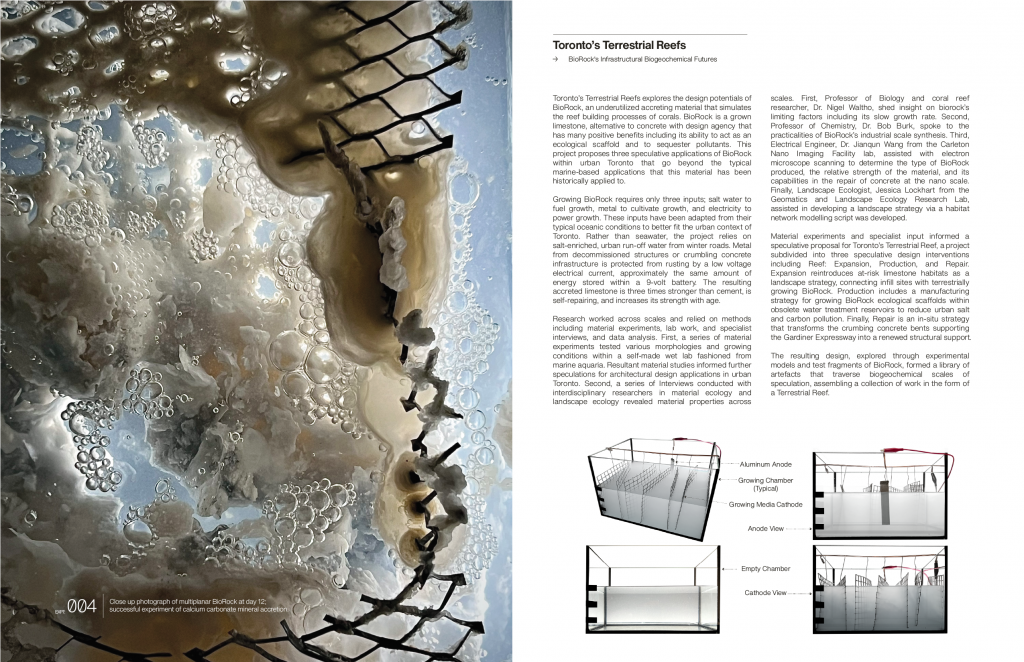
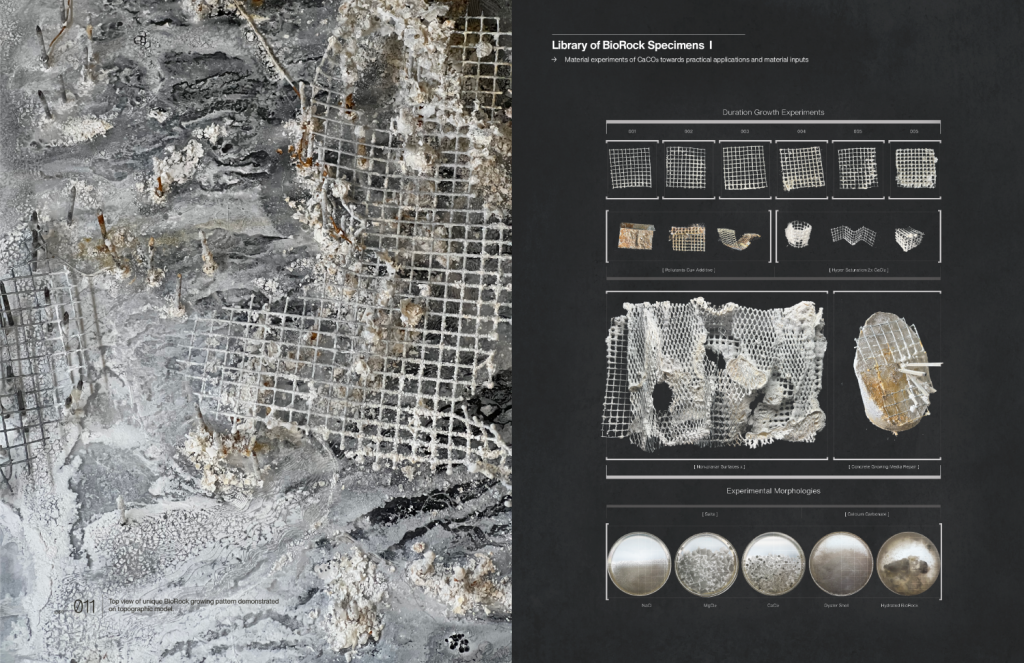
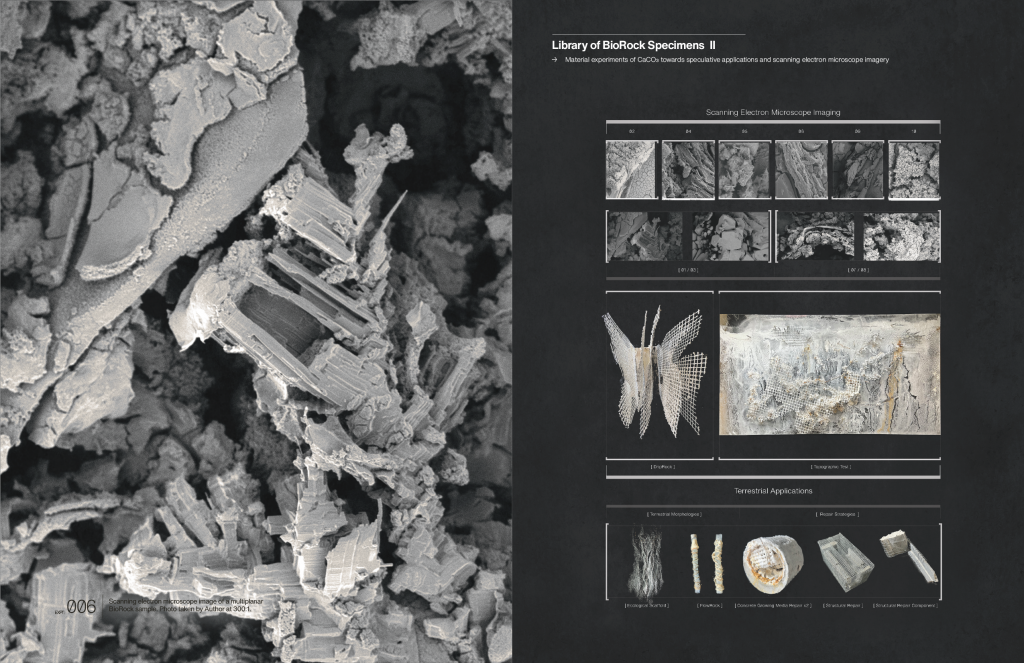
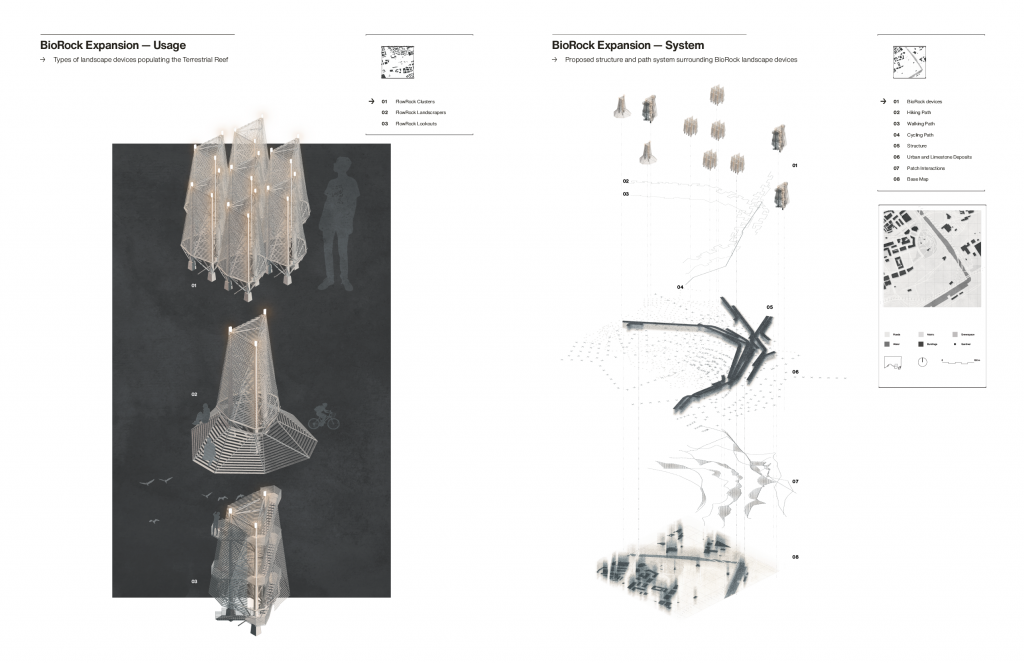
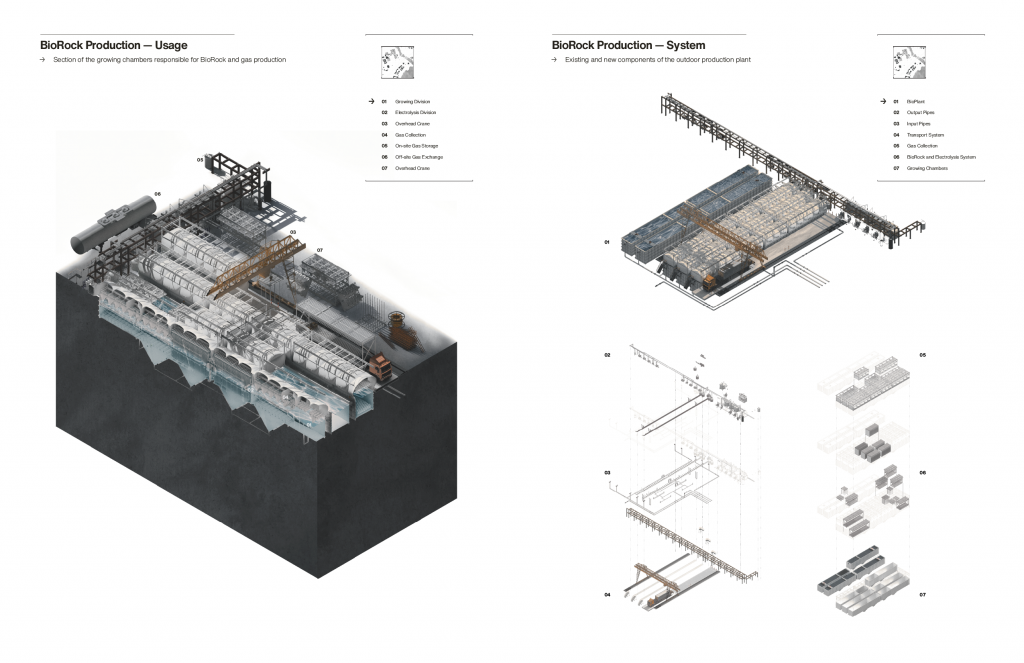
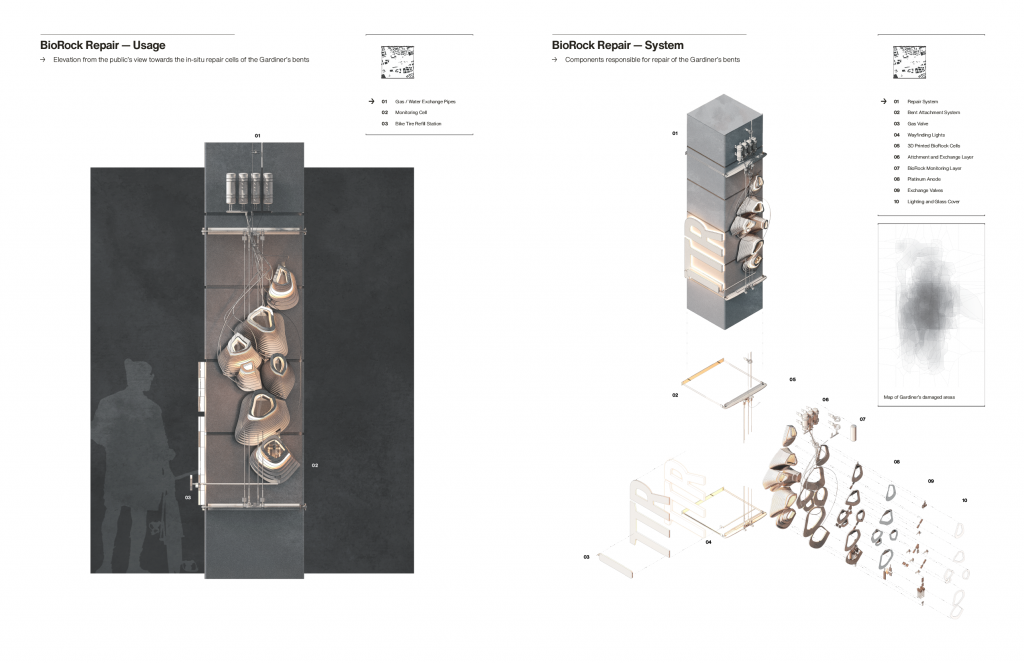
Of the 218 professional, student, and photo submissions received for this year’s program, the jury selected five projects for Awards of Excellence, eight projects for Awards of Merit, three projects for Student Awards of Excellence, and two winners of the Photo Award of Excellence.
The award-winning projects are announced here and general jury comments on this year’s submissions can be viewed here. The winning projects are described in full, along with images and complete juror comments, in the December 2023 issue of Canadian Architect, available in print and online.